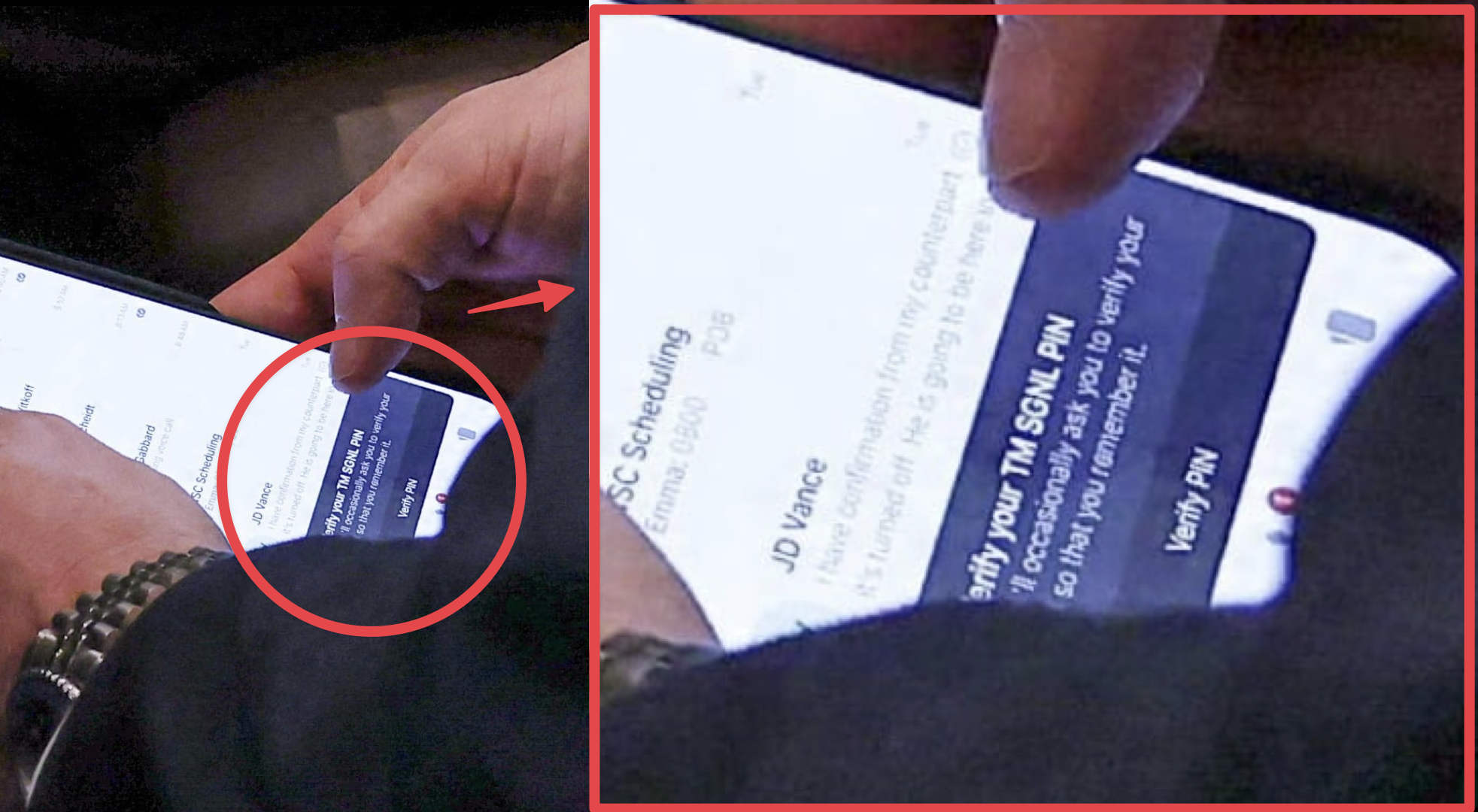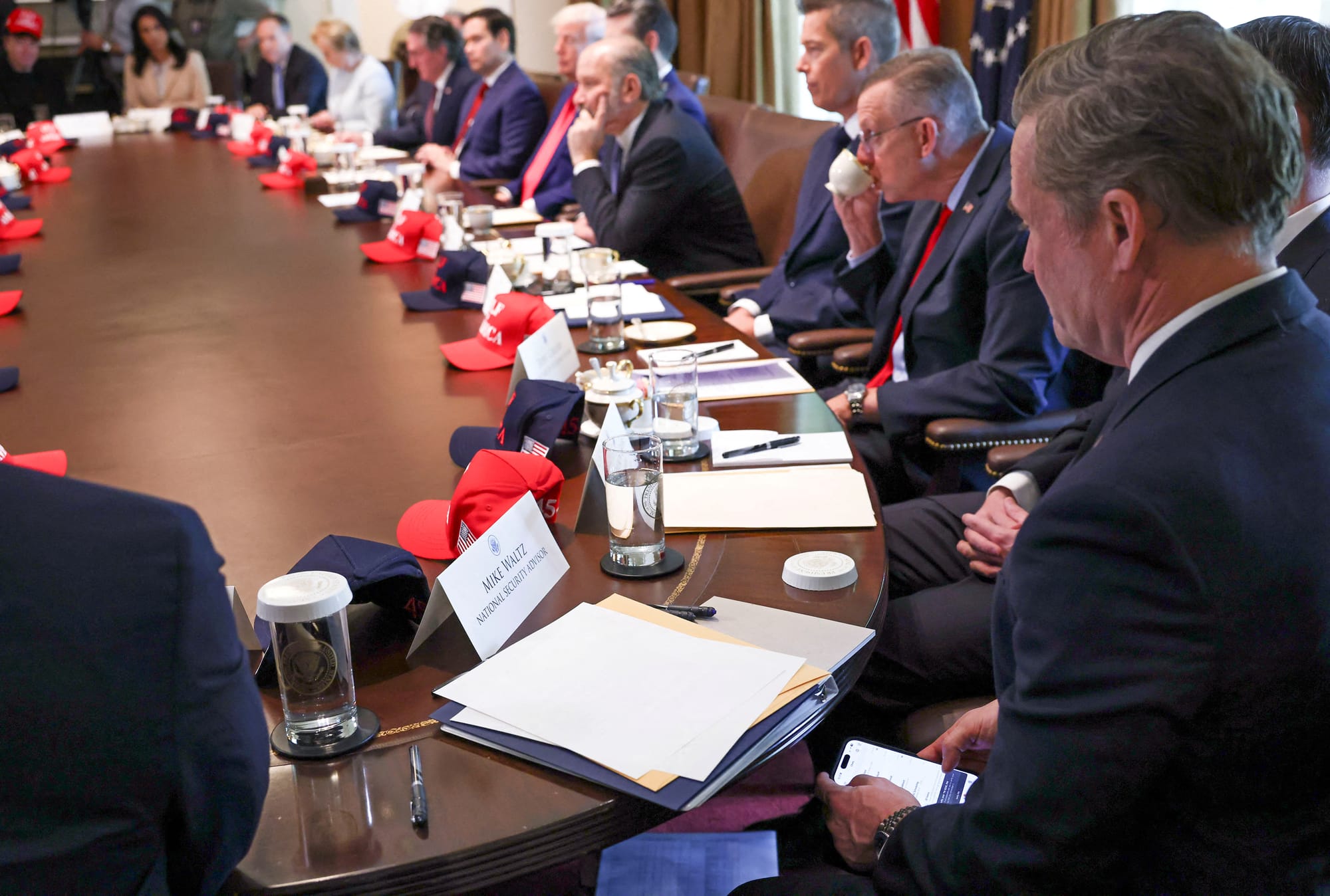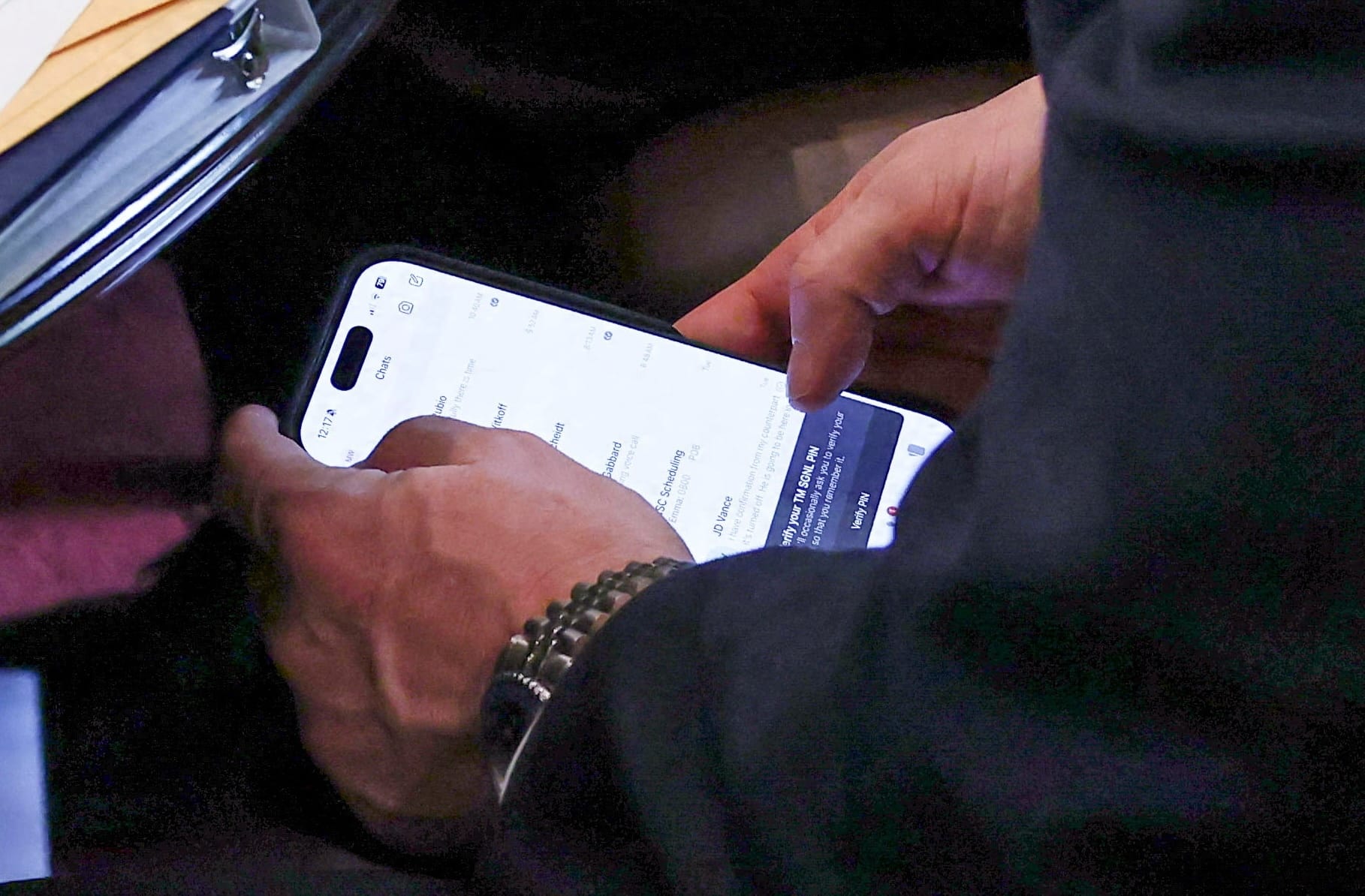
Mike Waltz, who was until Thursday U.S. National Security Advisor, has inadvertently revealed he is using an obscure and unofficial version of Signal that is designed to archive messages, raising questions about what classification of information officials are discussing on the app and how that data is being secured, 404 Media has found.
On Thursday Reuters published a photograph of Waltz checking his mobile phone during a cabinet meeting held by Donald Trump. The screen appears to show messages from various top level government officials, including JD Vance, Tulsi Gabbard, and Marco Rubio.
At the bottom of Waltz’s phone’s screen is a message that looks like Signal’s regular PIN verification message. This sometimes appears to encourage users to remember their PIN, which can stop people from taking over their account.
💡Do you know anything else about this app or how it is being used? I would love to hear from you. Using a non-work device, you can message me securely on Signal at signalaccount.05 or send me an email at joseph@404media.co.
But the message is slightly different: it asks Waltz to verify his “TM SGNL PIN.” This is not the message that is displayed on an official version of Signal.
Instead TM SGNL appears to refer to a piece of software from a company called TeleMessage which makes clones of popular messaging apps but adds an archiving capability to each of them. A page on TeleMessage’s website tells users how to install “TM SGNL.” On that page, it describes how the tool can “capture” Signal messages on iOS, Android, and desktop.
The original image and then a zoomed-in version. Both images credit: REUTERS/Evelyn Hockstein TPX IMAGES OF THE DAY.
“Archive your organization’s mobile text, chats and calls,” TeleMessage’s homepage reads.
In a video uploaded to YouTube, TeleMessage says it works on corporate-owned devices as well as bring-your-own-device (BYOD) phones. In the demonstration, two phones running the app send messages and attachments back and forth, and participate in a group chat.
The video claims that the app keeps “intact the Signal security and end-to-end encryption when communicating with other Signal users.”
“The only difference is the TeleMessage version captures all incoming and outgoing Signal messages for archiving purposes,” the video continues.
In other words, the robust end-to-end encryption of Signal as it is typically understood is not maintained, because the messages can be later retrieved after being stored somewhere else. At one point, the video shows copies of those messages in what appears to be an ordinary Gmail account, which would create additional security risks. The video says the Gmail is for the “demo” and that TeleMessage works with “numerous archiving platforms.”
“Let us take care of your Signal archiving and recording requirements,” the video concludes.
The fact that Waltz is using the TeleMessage version of Signal highlights some of the tension and complexity associated with high-ranking government officials communicating about sensitive topics on an app that can be configured to have disappearing messages: Government officials are required to keep records of their communications, but archiving, if not handled correctly, can potentially introduce security risks to those messages.
Neither TeleMessage, Signal, nor representatives of the U.S. government responded to a request for comment.
404 Media found numerous U.S. government contracts that mention TeleMessage specifically. One for around $90,000 from December 2024 says “Telemessage (a Smarsh Co.) Licenses for Text Message Archiving, & WhatsApp and Signal Licenses.”
On Thursday Waltz was pushed out from his role as national security advisor and is now instead Trump’s nominee for ambassador to the United Nations, multiple media outlets reported. Waltz was at the center of a political and national security firestorm when he accidentally added Jeffrey Goldberg, the editor-in-chief of The Atlantic, to a Signal group chat of senior Trump administration officials discussing specific combat plans against Houthi rebels in Yemen. Later the New York Times reported on a second Signal group chat in which Defense Secretary Pete Hesgeth shared more highly sensitive information with third parties including his wife and brother.
One concern from those group chats was that government officials may not be following record keeping laws for government communications by using Signal. TeleMessage may solve that problem. In the YouTube video, TeleMessage says users of its Signal archiving tool will remain “compliant with regulations” and that the tool supports “full company archival compliance.”
Government agencies have paid for versions of encrypted messaging apps that also have archive abilities before. In 2021, Customs and Border Protection (CBP) paid encrypted app company Wickr $700,000. Wickr offers an enterprise version of its product that can archive messages for auditing purposes. That deal was with the encrypted app developer itself, and not a third party like TeleMessage.
Matthew Gault provided additional reporting.
From 404 Media via this RSS feed
It should also be noted this is an Israeli company. So our state secrets are being entrusted to a foreign power that’s actively committing genocide.
This might be the way they’re getting around whatever the requirement is that all communications must be archived.




